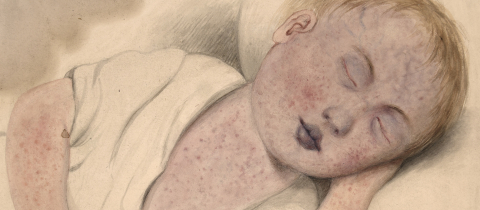This article was originally published in the Montreal Gazette
How effective is a single dose of a COVID vaccine? The U.S. Centers for Disease Control data in the Morbidity and Mortality Weekly Report suggests that one dose is not as good as two doses. However, the Public Health Agency of Canada (PHAC) has stated that only a tiny minority of Canada’s COVID-19 cases involved people who had received only one dose of vaccine, compared with no vaccine. Meanwhile, a study conducted in Qatar suggested that one dose was only 30 per cent effective against COVID-19 variants. If true, that would be disastrous in our current situation. People are understandably confused about just how much protection a single shot of Pfizer’s, Moderna’s, or AstraZeneca’s vaccine truly provides.
The CDC data were based on hospitalization records from 24 hospitals across 14 U.S. states in patients age 65 and older. The report found that people who received one dose of either Pfizer or Moderna were 64 per cent less likely to be hospitalized than people who were unvaccinated. Those who received both doses were 94 per cent less likely than unvaccinated people to need hospitalization.
There are a few caveats that have to go with this data. This analysis looked at hospitalizations, not infections, and only in people over 65, so it may not apply to the population as a whole. Also, since the United States is not using the AstraZeneca vaccine, this data can only give us information about the two mRNA vaccines from Pfizer and Moderna. But before we assume that partially vaccinated people are substantially less protected, we need to remember that unlike Canadians, Americans have been getting their second doses three to four weeks after their first. That short window means that any estimate of vaccine effectiveness will have a considerable margin of error attached to it and the 64 per cent effectiveness could have been as low as 28 per cent or as high as 82 per cent. So all we can say for certain is that one dose is not as protective as two doses.
The data from PHAC is somewhat more reassuring. PHAC reported that as of April 26, there were 6,789 people who had received one dose of vaccine and who had become infected with COVID-19. If you exclude people who got sick within two weeks of their vaccination, when the vaccine theoretically has not kicked in yet, you are left with 2,274 infections, which represents 1.3 per cent of all cases reported since December. On the surface, this is reassuring and shows that the vast majority of people who get sick are unvaccinated. But saying that partially vaccinated people make up a small sliver of new infections is not the same as saying that partial vaccination is effective. The PHAC data can’t actually tell us how effective a single dose is. We can infer from their data that a single dose offers some protection, but not to what degree.
Finally, much was made of a recent study from Qatar published in the New England Journal of Medicine. It evaluated the efficacy of the Pfizer vaccine against the B.1.1.7 variant associated with the United Kingdom and the B.1.351 variant associated with South Africa, and found Pfizer’s vaccine to be 89.5 per cent and 75 per cent effective, respectively. While the headline should have read that Pfizer’s vaccine was still very effective against circulating variants, some people focused on data showing that after a single dose the vaccine was only 30-per-cent or 17-per-cent effective, respectively. Unfortunately, the short dosing interval means that interpreting these numbers is challenging, and applying them to our situation is all but impossible.
So how protective is a single dose? One dose undeniably offers significant protection against COVID-19, but infections, especially with the rise of new variants are still possible, though rare. Maintaining public health measures even after one dose remains necessary. While one dose is good, two are better.







